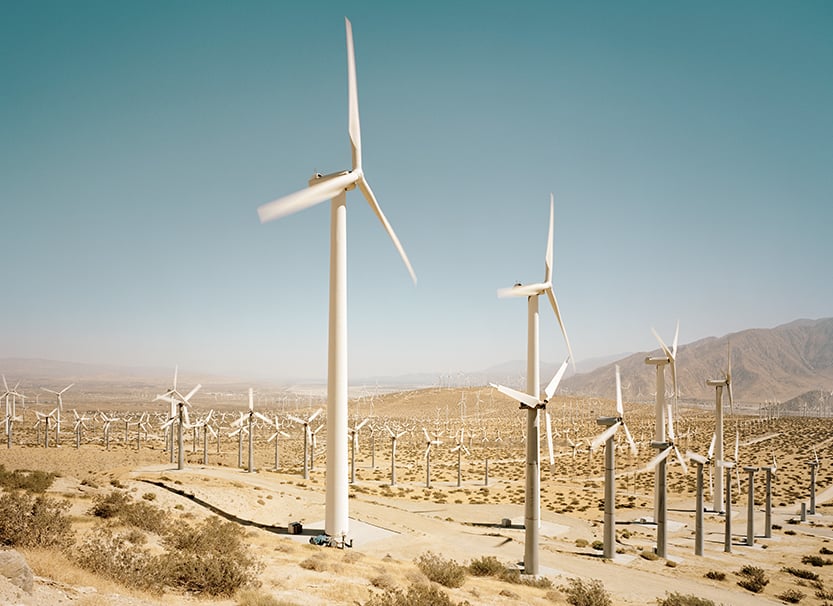
California Agency Releases Roadmap for Phaseout of High-Risk Pesticides
The California Department of Pesticides Regulation (DPR) recently released a “roadmap” for the state to fulfill two key goals by 2050: transition to sustainable pesticide management (SPM) and elimination of the use of “high-risk” pesticides. While the roadmap is aspirational and does not provide specific rules at this time, the roadmap goals were developed by a multiagency workgroup in coordination with various stakeholders. It is expected that proposed rules will be forthcoming from DPR and other state agencies as these agencies move toward achieving the roadmap goals.
FERC Approves New Extreme Cold Weather Reliability Standards
On February 16, 2023, the U.S. Federal Energy Regulatory Commission (FERC) approved two new North American Electric Reliability Corporation (NERC) Reliability Standards: EOP-011-3 (Emergency Operations) and EOP-012-01 (Extreme Cold Weather Preparedness and Operations). The new standards stem from FERC and NERC’s joint inquiry into Winter Storm Uri — the February 2021 winter storm event that led to the largest controlled firm load shed event in U.S. history, with over 4.5 million people losing power and at least 210 people losing their lives. The joint inquiry resulted in the issuance of a November 2021 report that included recommendations for NERC reliability standard enhancements to improve extreme cold weather operations, preparedness, and coordination. The November 2021 report found that the bulk power system “cannot operate reliability without adequate generation.”[1]

California Senator Reignites Corporate Greenhouse Gas Emissions Disclosure Bill
A new bill introduced in the California legislature tees up corporate disclosure legislation that narrowly failed to pass the State Assembly during last year’s term. The bill would impose broad greenhouse gas (GHG) reporting requirements on large businesses doing business in California and could effectively set a national standard for these businesses to report GHG emissions.
Amidst Recent Attacks, U.S. Regulators Emphasize Grid Security
A series of threats to the U.S. power grid have elevated physical grid security as a key concern for federal energy regulators. On December 15, 2022, the Federal Energy Regulatory Commission (FERC) ordered the North American Electric Reliability Corporation (NERC) to reassess its existing security rules in light of recent grid attacks.
The Enforcement Angle: The New Mexico Environment Department
Join Sidley for the Environmental Law Institute’s People Places Planet podcast series, “The Enforcement Angle.” Through this series, Sidley partners discuss state and federal enforcement of environmental laws and regulations with senior enforcement officials and thought leaders on environmental enforcement in the United States and globally. The featured guests offer their insights into the challenging environmental issues facing corporations today.

EPA Acts on Interstate Transport Requirements for Ozone Under State Implementation Plans
On Tuesday, January 31, EPA Administrator Michael Regan finalized EPA’s disapproval of State Implementation Plan (SIP) submissions for 19 states regarding the interstate transport of ozone under the 2015 eight-hour ozone national ambient air quality standards (NAAQS) of 70 parts per billion. Under the Clean Air Act, states were required to submit SIPs for the 2015 eight-hour ozone standard by October 1, 2018. The Clean Air Act required the SIPs to include “good neighbor” provisions, which prohibit emissions that either significantly contribute to nonattainment in a neighboring state or interfere with maintenance of the NAAQS in a neighboring state.
White House Council on Environmental Quality Moves Updates to National Environmental Policy Act Implementation Rule
On Monday, January 30, 2023, the White House Council on Environmental Quality (CEQ) sent to the Office of Management and Budget (OMB) Phase 2 of its proposal to revise the National Environmental Policy Act (NEPA) implementing rules released under the prior administration. Litigation surrounding the prior administration’s rules is stayed pending CEQ’s ongoing efforts. OMB review is a necessary prerequisite before CEQ can publish any new rule in the Federal Register and follows release of Phase 1 of CEQ’s implementing rules last April, which the administration described as restoring pre-2020 requirements for agencies to assess direct, indirect, and cumulative effects of proposed actions under NEPA.

U.S. Senate Committee on Energy and Natural Resources Holds Hearing on Department of Energy IIJA Implementation
On February 2, 2023, the U.S. Senate Committee on Energy and Natural Resources convened a full committee hearing to examine the U.S. Department of Energy (DOE) implementation of the Infrastructure Investment and Jobs Act (IIJA). The sole witness during the hearing was David Turk, DOE Deputy Secretary. During his remarks, Deputy Secretary Turk noted that the IIJA provided more than $62 billion in funding to DOE and requires DOE to develop 60 new programs and expand funding for 12 existing programs. Deputy Secretary Turks stated that as of January 30, 2023, DOE had solicited 50 Requests for Information for public input on IIJA program design, released 38 Funding Opportunity Announcements worth more than $37 billion in initial investments for IIJA programs, conditionally awarded $1.1 billion in zero-emission energy generation credits, and made available $4.25 billion in formula funding for energy efficiency improvements to state and local governments and tribal nations. With respect to electric transmission, the DOE Grid Deployment Office announced its first Request for Proposals regarding the Transmission Facilitation Program, a $2.5 billion revolving fund program that will help develop new large-scale transmission lines and upgrade existing transmission.

